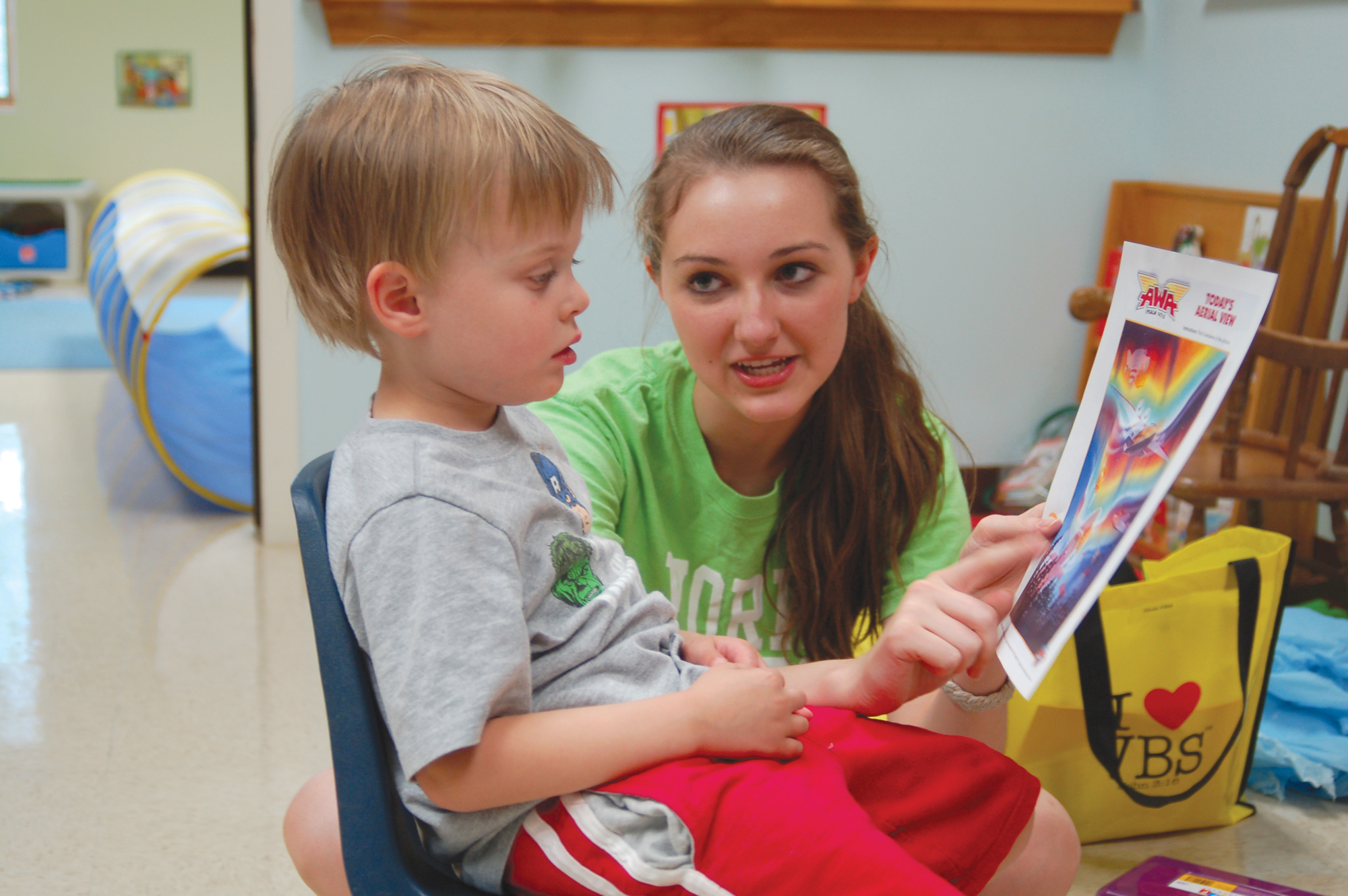
EDITOR’S NOTE: 2nd VIEW is a key Baptist Press story that has been posted within the past several days. For a listing of additional key stories in Baptist Press in recent days, always take a look at the daily RECENT NEWS listing.
Originally posted July 29, 2014
STEWARTSTOWN, Pa. (BP) — Special needs children and their families have a cadre of buddies at Stewartstown Baptist Church.
To share God’s love with special needs families, the Pennsylvania congregation offers respite nights as an outreach to the community. Special needs children and their siblings come to the church for a fun night every other month while the parents get a date night, knowing their children are in a safe place with people able to provide the quality of care their youngsters need.
On Sundays, the church pairs special needs children with volunteers in what they call its “buddy system.” Buddies sit with the children, support them and assist them in the church’s worship services, Sunday School and Awana youth program.
For the buddies, it’s a ministry that seems to be as much a blessing to them as it is to special needs families.
“There’s just something real special about helping these little ones feel accepted and wanted,” said Joan Theisen, who has been a buddy for about a year. “When you can be a buffer to help the children melt into the group and not feel they stand out, that’s a good feeling.”
Matt and Amy Hamulack wanted to be in church with their three children, but their daughter Addison is autistic and they didn’t feel comfortable in other churches they visited.
“We didn’t know where to go, and then we heard about the respite nights this church offers,” Matt Hamulack said.
“The big thing is [Pastor] Lee and [his wife] Sandra have a special needs child,” Hamulack noted. “Knowing there is someone who understands, someone who ‘gets it,’ and someone to help, that’s a big deal for parents like us.” The congregation helps his family with “the most important thing — to know God and Jesus and to teach the kids.”
Lee Peoples was called to lead the Stewardstown church in 2008. He and his wife Sandra have two sons, who were 2 years old and 4 months old at the time. Two years later, a church member who worked as an occupational therapist noticed that their son James did not appear to have age-appropriate motor skills.
A slate of tests determined James was autistic.
“I felt relieved,” Sandra Peoples said. “Because we had a diagnosis, a name, then we knew what to do next. Lee was in shock; I was in warrior mode. I didn’t cry after we heard the diagnosis; Lee did.”
The pastor nodded. “For me, to see he was never going to be like other kids, it was the death of a dream. You have to change your mind around it.
“In the first year after the diagnosis, James wasn’t invited to the birthday party of a peer,” Peoples continued. “That’s the thing you’re more aware of. Everything makes you feel different…. With what I’ve seen and heard and learned since the diagnosis, I now believe families with special needs to be an unreached people group.”
Ashley Norris, a special education teacher, and Nicole Filack, an occupational therapist, went to their pastor about a year after James’ diagnosis with a concept for a new ministry, which took hold among the 135 people who attend the church’s weekly services.
Norris and Filack wanted to reach special needs families in the Stewartstown area with a three-hour Friday night respite event every other month so parents could have a night out. Soon after, the buddy system was birthed so the church could integrate the families it would be reaching.
“We’re trying to teach them about God’s Word and to provide an environment where parents feel comfortable, so they can learn more about God’s Word themselves,” Norris said. “We can tell they [the children] like the opportunity for the special attention they receive from their buddies.
“Everything we do, we make accommodations for those with special needs,” Norris said. “You train your people to a certain point, but basically you just get to know the children. Some like to be touched; some, not. Some are verbal; some, not.”
Volunteers are taught the signs of epilepsy and how to help a child who is having a seizure, as well as basic first aid. They are also trained in how to gently and lovingly work with and assist the children, rather than doing tasks for them.
An unanticipated benefit of including special needs children in the life of the church, Norris said, is that other students come to understand, accept and accommodate people who are “different,” which adds a broader dimension to their worldview. The occasional unique behavior of special needs youngsters is accepted by the congregation, she added. “Our church has learned to not take ourselves so seriously.
“Children with special needs will change a church,” Norris said. “Some churches are scared of the dynamics, but we believe every church — no matter how small — can do something.”
–30–
Karen L. Willoughby is a national correspondent for SBC LIFE (www.sbclife.org), the journal of the Southern Baptist Convention’s Executive Committee.
















